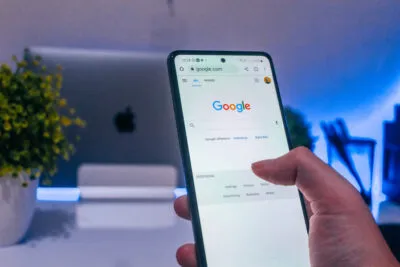- Originally Published on October 22, 2024
5 Legal Tips Influencers Need to Know

Get Help Right Away.
TRANSCRIPT
Introduction
As an influencer, you want to do everything you can to legally protect your brand. In this video, we’ll share five crucial legal tips every content creator needs to know so that you can focus on growing your platform with peace of mind.
I’m Melanie Hughes, a paralegal at Minc Law, the nation’s leading law firm that helps content creators and influencers safeguard their brands and content.
In this video, we’ll cover:
- Trademarks
- Brand deal contracts
- Content takedowns
- Protecting your privacy
- Other legal tips
By the end of this video, you’ll have a strong foundation to build your brand on and the confidence to handle legal issues like a pro.
Protecting Your Content and Brand
Copyright and Trademark Registration
As an influencer, your content is your most valuable asset. It’s important to protect it against online users stealing your content and infringing on your copyrights. This includes:
- Registering your copyrighted work with the US Copyright Office
- Obtaining trademark registration protection for:
- Stage names
- Personal brand elements like a logo, company name, slogan, or tagline
The trademark and copyright process can take anywhere from several months to over a year, and it requires numerous forms and information. Because of the complexity, we highly recommend hiring an attorney to assist with this process.
Navigating Brand Deal Contracts
Key Clauses to Review
Brand deals are exciting for influencers, but before you sign on the dotted line, make sure to review these key clauses to protect yourself:
- Brand Alignment: Ensure the product or service you’re promoting aligns with your personal brand.
- Content Ownership: Check the contract to see how the content you create for the brand deal will be used, so you don’t lose control over it.
- Payment Terms: Ensure transparency in compensation, including how and when you’ll be paid.
- Exclusivity Provisions: Review any exclusivity clauses that may limit your future opportunities with other brands.
Protecting Your Content from Theft
Content Theft and DMCA Takedowns
Content theft and plagiarism are common on the internet. Other individuals or influencers may try to steal your content and pass it off as their own.
To protect your work:
- Add watermarks or copyright notices to your images and videos to deter people from stealing and reposting them.
- If your content is stolen and republished without permission, you can utilize the Digital Millennium Copyright Act (DMCA) to help take it down.
- Although it’s not required to hire a professional for this process, some influencers prefer working with an attorney or takedown service to handle this aspect of their business.
Safeguarding Your Privacy
Protecting Your Personal Information
As an influencer, you share more of your life online than most people, which means you need to be extra cautious about protecting your privacy. Here are some steps to ensure privacy while maintaining your brand:
- Reveal as little personal information as possible: Share parts of your life that build your brand, but be mindful not to disclose too much about yourself or your family.
- Use a separate email: Create an email address specifically for your business that is separate from your personal email.
- Set up a virtual mailbox or P.O. box: This prevents people from sending mail to your private residence.
- Use two-factor authentication (2FA): Enable 2FA on all your social media accounts to ensure they can’t be easily compromised.
Complying with FTC Guidelines
Disclosure and Transparency
It’s crucial for influencers to follow FTC guidelines when endorsing products and services. The FTC monitors how influencers disclose partnerships, so be sure to use terms like “sponsored” or “advertisement” when promoting products in paid agreements to be transparent with your audience.
Publicity and Privacy Concerns
Additionally, you may violate someone’s right to privacy if you use their image or video for commercial purposes without their permission. Always ensure you have proper consent.
Defamation Risks
Avoid making defamatory statements about other people or businesses. False statements made online could lead to serious legal consequences. If you encounter an issue or have questions, contact an attorney specializing in online defamation.
Conclusion
Implementing these five legal tips can help you thrive as an influencer while minimizing legal headaches.
If you have any questions or need guidance putting these strategies into action, fill out our contact form, use our live chat, or call 216-373-7706 for a free case evaluation with our intake team.
I’m Melanie Hughes from Minc Law, and I’ll see you in the next video.
END OF TRANSCRIPT
This page has been peer-reviewed, fact-checked, and edited by qualified attorneys to ensure substantive accuracy and coverage.



